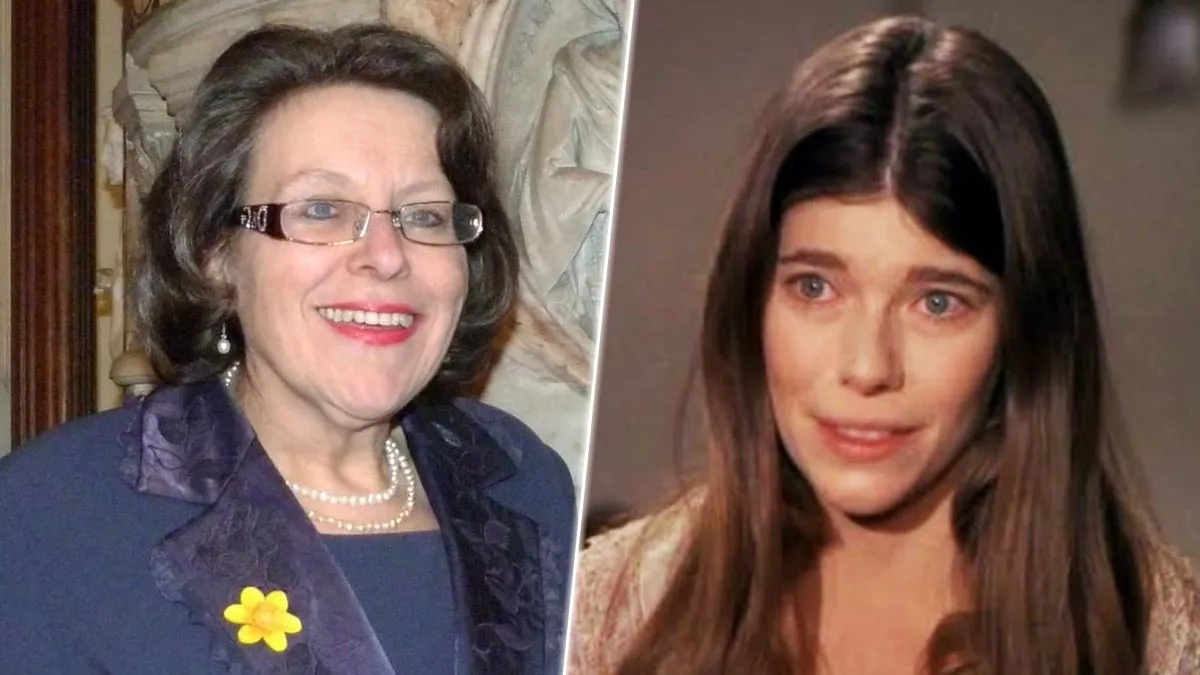
Sian Barbara Allen, the Emmy-nominated actress known for ‘The Waltons’ and ‘Family’, died peacefully at 78 after a long fight with Alzheimer’s disease. Her family confirmed the news, stating she spent her final days surrounded by loved ones.
Table of Content:-
Allen’s career spanned decades, but fans will remember her warmth on screen. Her death highlights the harsh reality of Alzheimer’s, which affects millions of people globally. Experts stress early detection and care. Read ahead to learn more about the celebrated actress and her medical condition.
Who Was Sian Barbara Allen?
R.I.P. SIAN BARBARA ALLEN pic.twitter.com/ouPuyPWrHr
— FAMOUS WOMEN (@Kevin10919728) April 1, 2025
Sian Barbara Allen was born in 1946 in New York. She became famous in the 1970s for playing Emily Beardsley in ‘The Waltons’. Her role as a young widow earned her an Emmy nomination. She later starred in ‘Family’ and ‘Lou Grant’. Fans loved her emotional depth and kindness on screen. Allen retired in the 1990s but stayed active in theatre. Friends say she valued privacy but often supported Alzheimer’s charities after her diagnosis in 2018
What is Alzheimer’s Disease?
-1743578804772.jpg)
Alzheimer’s is the most common type of dementia. It damages brain cells, causing memory loss, confusion, and mood changes. Over time, patients struggle to talk, eat, or recognize loved ones. The risk grows with age. Dr Kailas Mirche, Neurologist, Citizens Specialty Hospital, Hyderabad, explains Alzheimer's as a brain disease. “It slowly damages memory and thinking skills. Over time, it affects other mental abilities. The disease mostly affects people over 60. But sometimes, it can start as early as age 30," he shared.
According to a study published on PubMed, Alzheimer’s disease, the most common form of dementia, accounts for 60–70% of dementia cases worldwide and is a leading cause of death among older adults. Around 1.6 million deaths globally are attributed to Alzheimer’s and other dementias. 90% of deaths occur in adults over 65, with the risk doubling every 5 years after age 65.
ALSO READ: Kylie Kelce and Husband Jason Welcome Their 4th Baby Girl: Know Her Name and Its Meaning
Sian Barbara Allen’s Fight and Advocacy
Allen kept her diagnosis private for years but later spoke about Alzheimer’s to raise awareness. In a 2020 interview, she said, “Losing memories feels like losing yourself. But love stays.” Her daughter, Clara, shared, “Mom wrote journals to hold onto her thoughts. She laughed until the end.” Allen joined clinical trials for new drugs and donated to research groups like the Alzheimer’s Association.
Alzheimer’s Warning Signs
Experts urge people to watch for these early symptoms:
- Forgetting recent events: Missing appointments or repeating questions.
- Confusion with time/place: Getting lost in familiar areas.
- Mood swings: Sudden anger, fear, or sadness.
- Trouble with words: Struggling to follow conversations.
- Poor judgment: Mishandling money or neglecting hygiene.
How to Reduce Alzheimer’s Risk
-1743578997037.jpg)
While age and genes play a role, lifestyle changes can lower risk:
- Exercise regularly: 30 minutes of walking daily boosts brain health.
- Eat brain-friendly foods: Fish, nuts, berries, and leafy greens.
- Stay social: Loneliness speeds cognitive decline.
- Control blood pressure and diabetes: These harm blood vessels in the brain.
- Challenge your mind: Puzzles, reading, or learning new skills.
ALSO READ: John Cena Opens Up About Skin Cancer Diagnosis: Why Sun Protection Matters
Conclusion
Sian Barbara Allen’s legacy isn’t just her acting. It was her courage to face Alzheimer’s openly. Her journey reminds us to cherish moments, support caregivers, and push for better treatments. If you notice memory changes in yourself or a loved one, talk to a doctor early. The disease slowly takes away memories and thinking skills, but it doesn't take away love. Her story reminds us to care for our brain health and support those fighting this illness. While there's no cure yet, early detection and proper care can help.
How we keep this article up to date:
We work with experts and keep a close eye on the latest in health and wellness. Whenever there is a new research or helpful information, we update our articles with accurate and useful advice.
Current Version